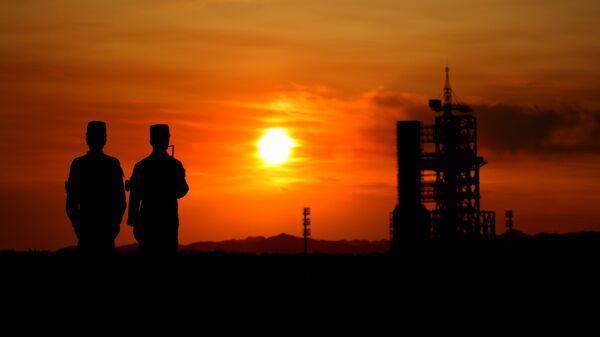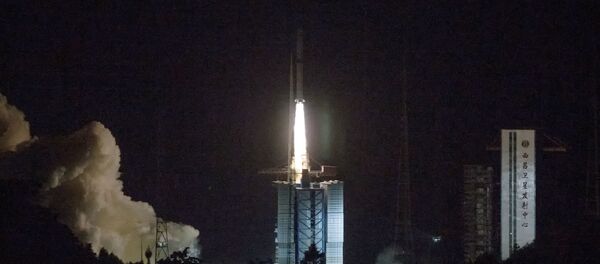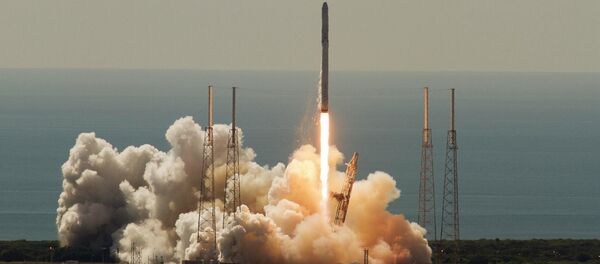The aerospace industry used to be a battleground for superpowers. Space agencies were all sponsored by governments. However, commercial upstarts have joined the competition since the beginning of this century. Now, commercial aerospace companies can produce cheap and market-friendly spaceflight products at a fast speed. As of the end of 2017, three-quarters of the global production value in the aerospace industry was from commercial aerospace companies.
New forces in the commercial aerospace sector in China are emerging.
On October 29, 2015, the State Council released a notice to encourage and support civilian space infrastructure development. In the same year, the first batch of commercial aerospace enterprises appeared in China.
Last year, 17 Chinese aerospace enterprises received a total investment of 2.16 billion yuan ($308.6 million), Bingdian Weekly said. Since this summer, four Chinese aerospace companies obtained financing of 100 to 200 million yuan.
Potent Candidates
Among the 443 satellites launched in the past year, 267 were commercial satellites, and 26 out of the 91 rockets used to launch these satellites were from commercial companies, Bingdian Weekly reported in September.
In southeast Beijing's Yizhuang area, over a dozen teams work in testing grounds and office buildings, preparing for rocket manufacturing. Two teams launched two suborbital satellites in succession this spring.
For China, the leading role of its aerospace industry is still held by scientific institutions under the government. As a major player in space, China has launched a series of satellites. Universities have manufactured microsatellites and sounding rockets.
"The national team can pool resources to achieve great success," a senior executive at a Chinese commercial aerospace enterprise told Bingdian Weekly. "And we are potential candidates."
READ MORE: Trump Admits US Lags Behind Russia, China on Space Force Creation
Currently, many management and technical staff in commercial aerospace companies come from national scientific institutions. They are trying to test the water on how far China's commercial aerospace industry can go.
Engineers to Businessmen
Xie Tao, CEO of microsatellite company Commsat, heard a speech by Elon Musk in Beijing when he was still working in an aerospace institution in 2014.
Knowing little about what happened outside China's space industry, he had somehow heard that Musk is known as the "godfather of commercial aerospace."
In April 2014, Musk came to Beijing to publicize his electric cars and held an event in Zhongshan Park. When Xie and his friends came to the scene, tickets were sold at 3,000 yuan each. His friends left due to the expensive price, but he went in gritting his teeth, according to Bingdian Weekly.
Xie remembered Musk played a video of SpaceX's rocket Falcon flying into the sky, and then landing on an offshore recovery station. After the video was played, Musk said his electric car company Tesla would use the technology of the rockets as well.
"He is such a brilliant businessman!" Xie said, with his eyes opening.
Only four years later, Xie was striving to become a good businessman himself. His job was to make good products with good profits. "Though our technology is not the most advanced, we can innovate based on our client's requirements," he told Bingdian Weekly.
Zhang Qi had been working for the China Academy of Launch Vehicle Technology since 2002. This year, he chose to become a businessman and now works for a commercial aircraft company called iSpace.
Recalling his work experience in the system, Zhang is impressed by the strict discipline at the launching site. At the beginning, he wasn't sure how it will be for commercial aerospace enterprises, but this year, he was surprised.
Zhang told thepaper.cn that since January government barriers to progress in the commercial aerospace field have almost disappeared, and strong support to the field was offered by the authorities and at launching sites.
"I have never expected our military system and our ministries would give us such a great deal of support," Zhang added.
READ MORE: Are Trade War, Space Force Creation Driven by US Fears of China's Dominance?
More and more commercial aerospace enterprises have completed launches this year. In early September, two rockets developed by commercial aerospace enterprises were launched at the Jiuquan Satellite Launch Center, a national satellite launch center located in Northwest China.
According to Jia Lide, director of the planning division at the launch center, "It is the first time for private commercial aerospace companies to launch their rockets at our center, and this shows that our country's aerospace industry has become more commercialized," the Xinhua News Agency reported in September.
Jia noted the strategy of China's aerospace development is to standardize the supervision of commercial aerospace companies and steer them along in an orderly way.
Investments in Aerospace
Xie has witnessed changes in investors' interest over the past three years. He told thepaper.cn that when he started his business three years ago, nobody paid attention to satellites and aerospace. "They didn't even know which category it belongs to… but now, major investment institutions all invest in aerospace. They pay attention to research and push this industry on their own," he said.
However, the problem of cut-throat competition has made turning a profit very difficult, threatening the sector.
"I think the prices in the current rocket industry are very low. They are so low that we cannot even earn any money. It would be hard for the industry to achieve sustainable development under this circumstance," Shu told thepaper.cn.
READ MORE: China Plans to Launch 'Moon Double' Into Space to Illuminate Streets — Reports
Xie believes survival is the top priority. He acknowledges that the financing environment is not that good at present, hence, companies should be prepared to work hard for a long period of time to survive the tough times.
According to business news media Huxiu, most private aerospace companies are "mixed" — funded mainly by private capital, together with local government financial support.
China's SpaceX?
Almost every Chinese commercial aerospace enterprise is asked a question: Will you be China's SpaceX?
"We are nowhere near SpaceX," CEO Miao Jianquan of Uni-Explore, a commercial satellite startup company, told Bindian Weekly.
Shu echoed Miao. "If we compare SpaceX to a college student, today's One Space is just a pupil," he told the Global Times in previous reporting when asked about being called "the Elon Musk of China" by Chinese netizens.
Miao believes manufacturing commercial rockets is more difficult than satellites.
However, he finally chose satellites rather than rockets, because the cycle of independent research and development for rockets is too long.
"Media always say research and development for rocket engines is the most difficult part. Once the engine is done, the rocket is done. But they don't understand there will be more difficulties in the future," Miao told Bingdian Weekly.
READ MORE: Place Your Bets: Who Will Be First to Get a Man on Mars, Boeing or Space X?
Yang Feng said it is the industry in which it is the easiest to fail. As the CEO of Spacety, a commercial aerospace company specializing in developing commercial micro and nano-satellites, he appreciates SpaceX.
He watched a two-minute video showing all the failures experienced by SpaceX's aerospace products since 2013. With pleasant background music, the spacecraft in the video fell down, dropped and exploded.
Yang believed this video showed the confidence of SpaceX. If their strength has been tested and recognized, failure doesn't matter. He hoped one day a Chinese commercial aerospace company could publish such a video, which would be the best proof of its strength and confidence.
This article was originally published in Global Times.





